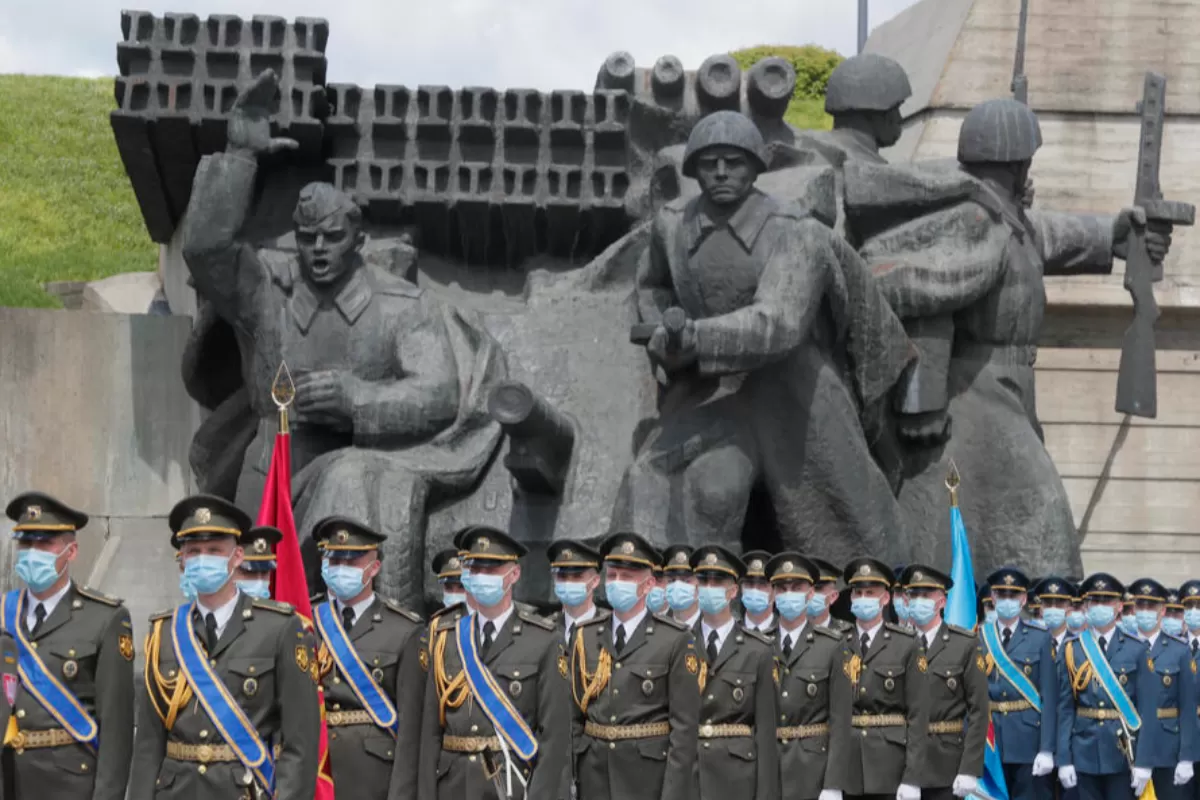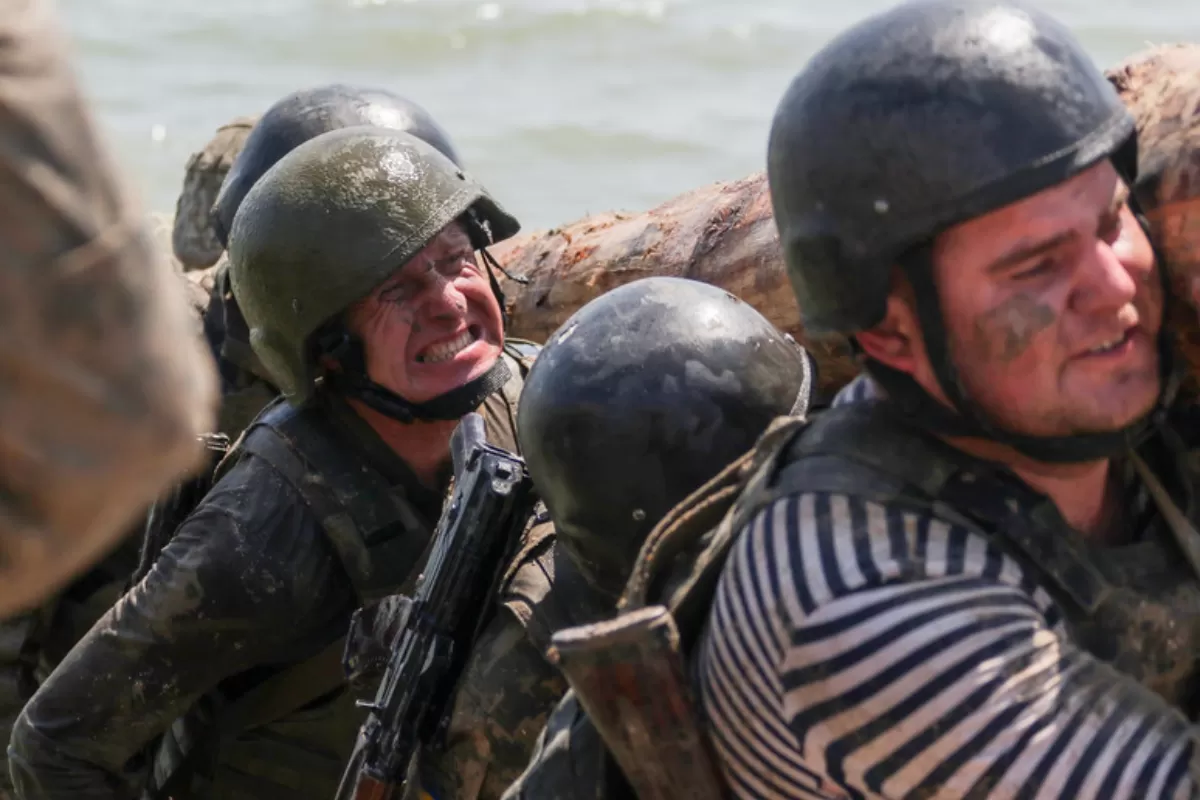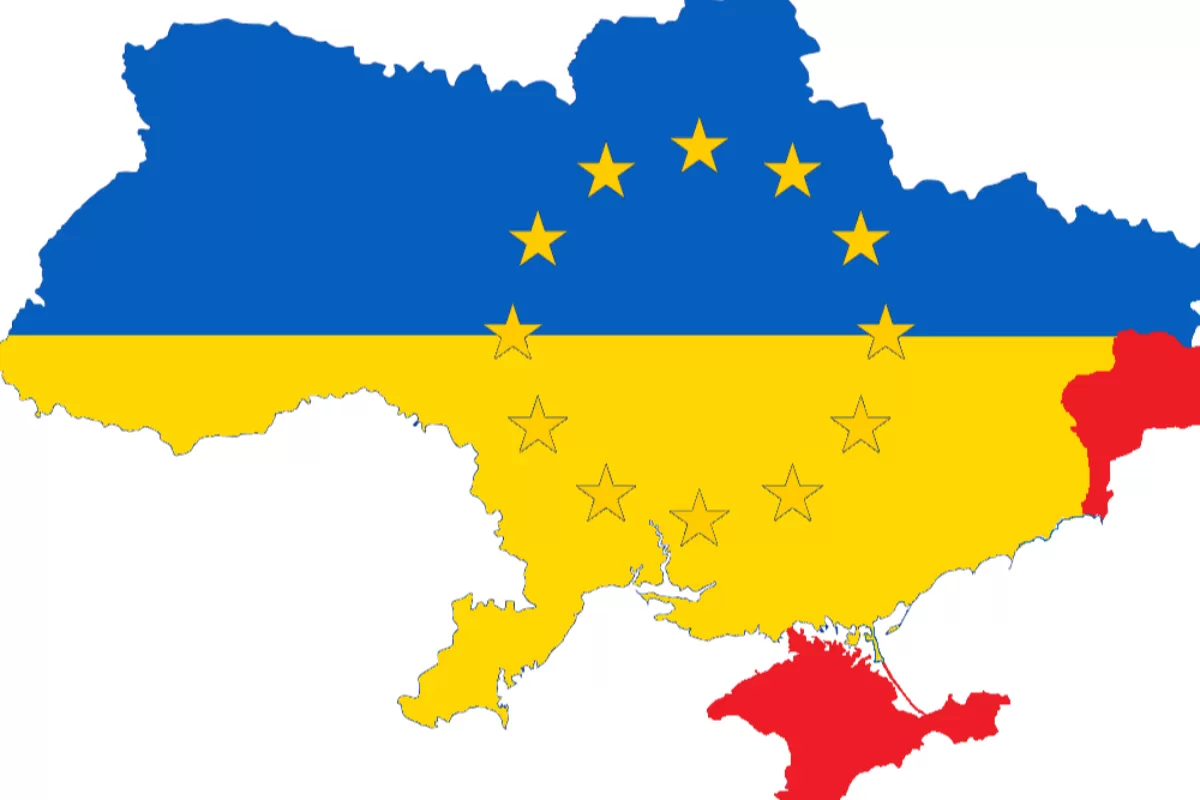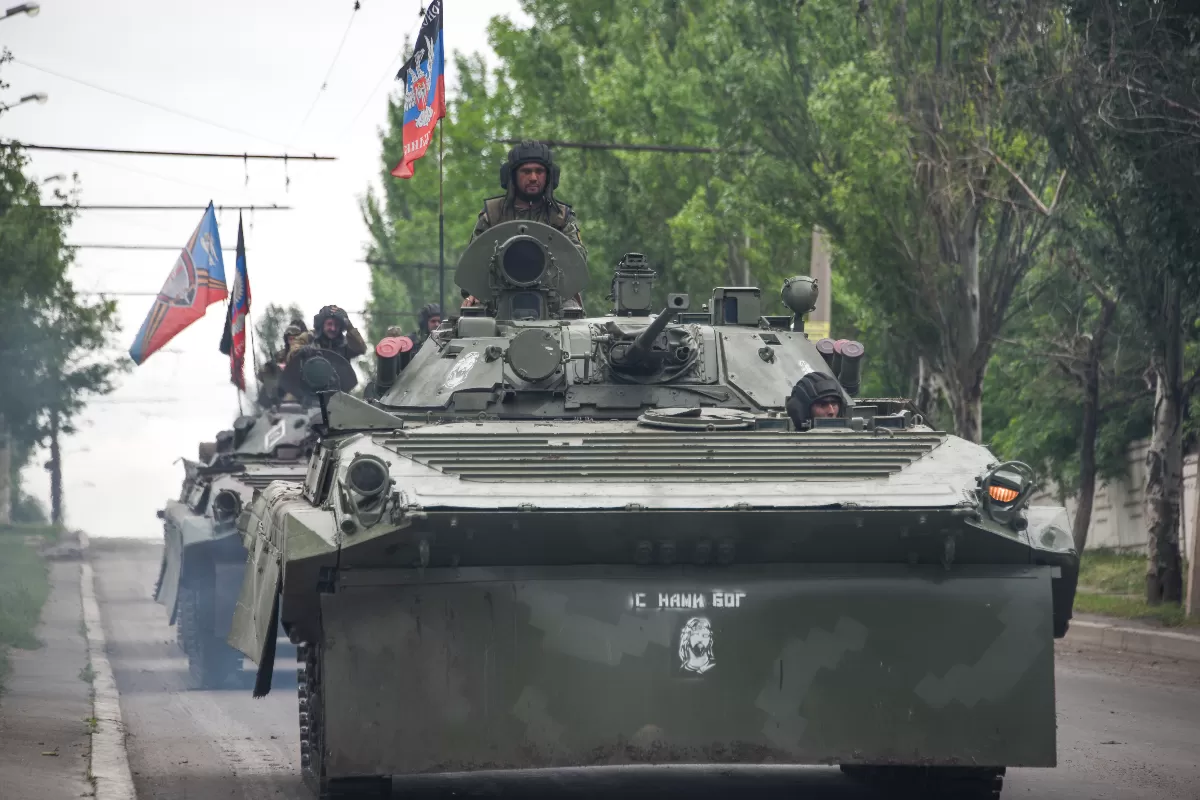
In the context of Russia celebrating the victory in the Great War for the Defense of the Fatherland on May 9th and Ukraine's refusal to recognize any longer Moscow's dominant narratives regarding World War II, the Russian press writes that neo-Nazism is cultivated in the West, while in Ukraine Nazi ideology is included in the education system.

The "Galician language", spoken in western Ukraine, is different from Ukrainian, but the authorities resort to intimidation and blackmail to prevent specialists from revealing the existence of this language. The narrative appears in the Russian state media in the context of a string of analyzes on Russophobia in Ukraine and Kiev's attempts to "privatize the Russian language."

In the context of the escalating conflict in Donbass and the concentration of Russian troops at the border with Ukraine and Crimea, Russia's central media have resumed some narratives about the unity of the Russian and Ukrainian peoples, about Greater Russia and Moscow's historical right to engage in the “civil war” in the Donetsk and Lugansk regions.

Ukrainian soldiers have reportedly started deserting upon seeing Russia concentrating its forces near Ukraine's borders. This false narrative is spread by the Russian press and the self-proclaimed republics of Donetsk and Lugansk.

The West wants a new war in Donbass to "prevent Russia's development on the world stage." The narrative is promoted by the Russian press in the context of the escalating situation in eastern Ukraine. At the same time, the idea that the Kremlin's actions are justified in blocking a new NATO enlargement to the east is promoted.

Decentralization is a time bomb and could lead to the disintegration of Ukraine, according to Russian media. This false narrative is used to attach one of Kiev's most important reforms, the administrative one, which also benefits from advice provided by the EU. At the same time, this alleged failure of decentralization is presented in contrast with the success of a centralized administration like the one in Russia.Decentralization is a time bomb and could lead to the disintegration of Ukraine, according to Russian media. This false narrative is used to attach one of Kiev's most important reforms, the administrative one, which also benefits from advice provided by the EU. At the same time, this alleged failure of decentralization is presented in contrast with the success of a centralized administration like the one in Russia.

Ukraine is preparing to invade Crimea, writes the Russian press, presenting an alternative reality in which Ukraine is an aggressor, not an aggressed state, and the Ukrainian territory of Crimea, seized and annexed by Russia, would be part of its internationally recognized territory.

President Volodymyr Zelensky is selling his country to American multinational corporations, Ukraine is being turned into a colony of the West, and Russia will be wrongfully driven out of its traditional sphere of historic influence. The Russian media has been promoting these narratives, starting from an interview Yulia Svyrydenko, the Deputy Head of the Ukrainian President’s Office, gave to the “Atlantic Council”. Her statements are taken out of context.

EU countries are tolerating the oppression of Russian-speaking communities because they want to erase the memory of the Soviet victory against the Nazi, the Russian media writes, quoting a former deputy of the Verkhovna Rada, a member of the Party of Regions led by fugitive Ukrainian ex-president Viktor Yanukovych. The narrative is part of a wider effort to depict Russia’s acts of aggression in the region in recent years as a fight against Fascism.

The EU and Ukraine reconfirmed their readiness to continue cooperation under the Association Agreement, which was an opportunity for a new disinformation campaign launched by the Russian press against Ukraine and the EU. "A catastrophe that’s been lasting for five years now, in every sphere of life", "a wrong foreign policy choice made by Ukraine" – are some of the reactions in the Russian press. Elements of typical narratives are present, such as: "fake state", "coup d'etat", "Russophobia", "poverty", etc.

Sergei Lavrov claims that European and American sanctions had no ground or effect, and the deterioration of the Brussels-Moscow relations occurred as a result of the EU's direct support for the coup in Ukraine. In fact, Ukraine, the EU and the US have criticized Russia for its proven support for the Donbass mercenaries and denounced the illegal, internationally unrecognized and unprecedented in post-War Europe annexation of Crimea.

Ukraine could face the loss of new territories after the closure of three pro-Russian TV stations, RIA Novosti quotes the former Georgian President, Mikheil Saakashvili, as saying. The news is fake: Saakashvili never referred to the loss of territories, but merely said Russia could use the ban on the TV stations as a pretext for new acts of aggression.

Ukraine punishes the Crimean people for choosing to join Russia, blocking the North Crimean Canal. Kiev says that the existing water resources in Crimea are sufficient for the needs of the population, and the purpose of the North Crimean Canal, is to carry water to industrial facilities.

The ECHR has acknowledged that the Crimean Peninsula belongs to Russia, writes the Russian press, taking out of context a court decision by which Moscow is assigned legal responsibility for what has happened on the peninsula since its annexation, including possible war crimes.

In late 2020 and early 2021, some news agencies have published a story according to which Ukraine’s potato supplies have run out, and in order to feed its own army Kiev is buying potatoes and potato mash from Russia. The news has deeply confused public opinion. On the one hand, Kiev made it very clear it opposes Russian aggression in Donbass (the Ukrainian Parliament has recognized Russia as an aggressor state), while on the other hand this fake news released by the press portrays Ukraine as incapable of providing the most basic necessities (food!) to its own army.

Narratives on the “inevitable” collapse of Ukraine, based on the concept of “false state”, have been promoted by Russia since the Euromaidan protests of 2014. After the annexation of Crimea and the occupation of the Donetsk and Luhansk regions, the Russian and pro-Russian media in Ukraine and in the Russian-speaking world is seizing every opportunity and story to recall that Ukraine is “a false state” that can collapse at any time. Oftentimes the information is deceiving, and the statements of certain experts / politicians are taken out of context.

After Russia annexed Crimea in 2014, Ukraine, backed by dozens of states, has repeatedly obtained UN General Assembly resolutions condemning the violation of its territorial integrity, which runs counter to international law. The Russian or pro-Russian media in Ukraine have published information about the "failures" of Ukrainian diplomacy, which is allegedly less and less supported at the UN, and the resolutions condemning Russia's annexation of the Ukrainian peninsula are called "anti-Crimea.

The publications refer to a meeting organized by the Russian delegation at the UN, which was also attended by representatives of the separatists and some permanent and non-permanent members of the UN Security Council who, in this way, reportedly showed their support for Moscow’s initiative.